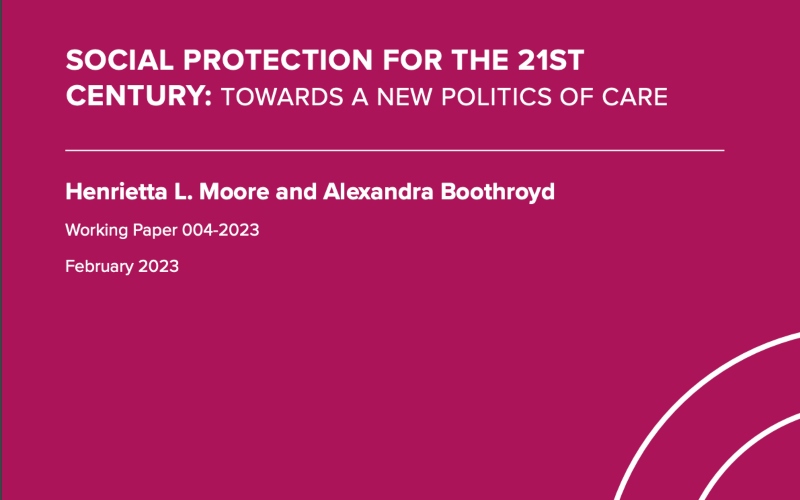Social Protection for the 21st Century: Towards a New Politics of Care
This IGP working paper unpicks the UK’s care crisis, using London’s tuberculosis (TB) rate as a case study

6 February 2023
By Henrietta L. Moore and Alexandra Boothroyd
Warnings that the UK is facing a ‘crisis of care’ are growing in volume. NHS wait times have reached a record high, and staff shortages across the social care workforce are predicted to rise to 500,000 by the end of 2030, as poor working conditions and the lowest wages of almost any sector in the UK make these careers increasingly unsustainable. The shortfall is being met by the most vulnerable, and over 350,000 people aged 16-25 in England and Wales now provide unpaid care to a loved one (BMA, 2022).
This IGP working paper unpicks the UK’s care crisis, using London’s tuberculosis (TB) rate as a case study. We argue that the crisis extends beyond health and social care: the UK is experiencing a breakdown of its social protection system, as the state fails to fulfil its duty of care. The latest figures linking austerity measures introduced between 2010 and 2017 to 335,000 excess deaths highlight the breadth of this crisis (Walsh et al, 2022).
Care, like illness, is profoundly political, and is here understood according to Tronto and Fisher’s definition: A working definition of care ‘Everything that we do to maintain, continue, and repair our ‘world’ so that we can live in it as well as possible. That world includes our bodies, our selves, and our environment, all of which we seek to interweave in a complex, life-sustaining web.’ (Tronto and Fisher, 1990) The failure to invest both financial and social capital in care has critical implications for human lives; it is structural violence exerted through policy (Farmer, 1999; 2004). Synthesising existing scholarship, we contend that our current approach to care is flawed, and we locate its problems on three interrelated levels: power, value, and scale. This paper argues that to act on all three levels, care must be redefined as a relational, interdependent, and multi-scalar phenomenon, and enacted across all areas of public policy. This can be achieved by the introduction of Universal Basic Services: an updated social protection system, fit for the 21st century.
 Close
Close

